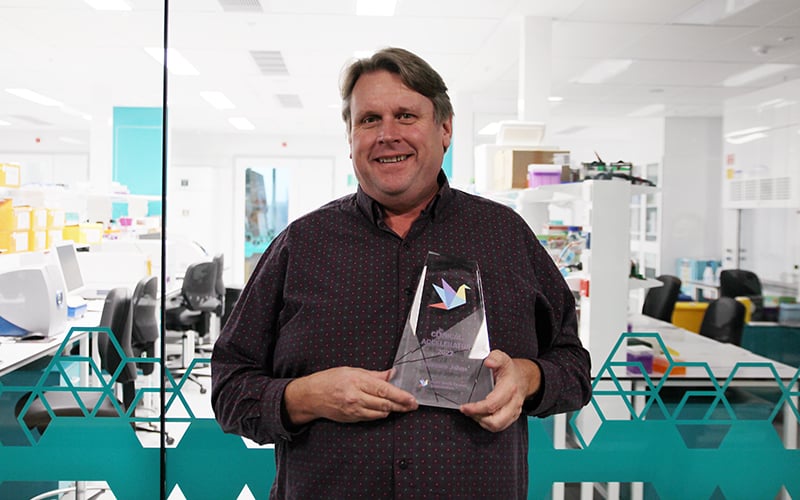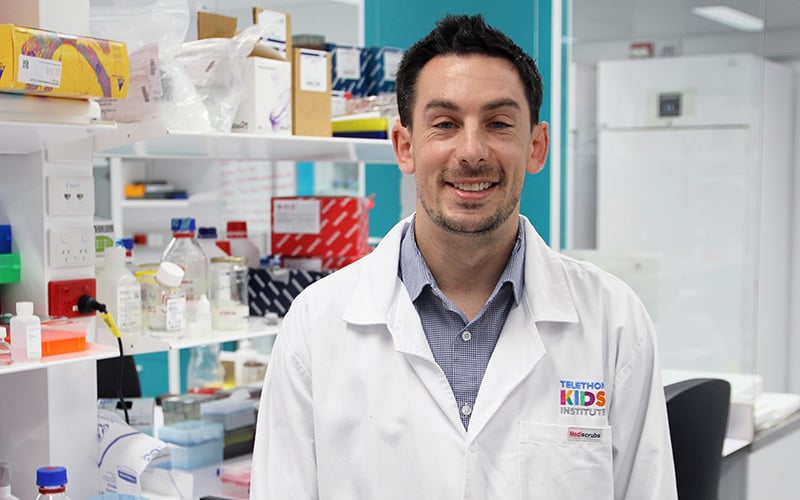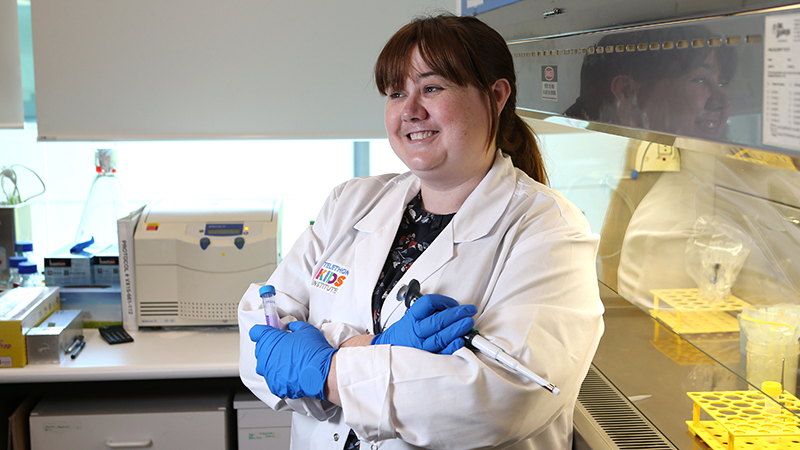Search

News & Events
World-first clinical trial in ‘man’s best friend’ could unlock treatment breakthrough for kids with cancerThe Kids Research Institute Australia is leading a unique clinical trial in pet dogs that could pave the way for a new immunotherapy treatment for one of the most common childhood cancers, Sarcoma.

News & Events
Trial of new antibody gives hope to children suffering from brain cancerChildren with aggressive brain cancers could soon have access to a significant new treatment option, using a unique antibody that stops cancer cells from repairing themselves.

News & Events
The Kids Research Institute Australia Cancer Centre Researcher wins Cancer Council WA FellowshipCancer Council WA has awarded a Post-Doctoral Fellowship to Dr Ben Wylie, for his project to help kids with sarcoma.

News & Events
“Natural killer” donor cells fighting kids leukaemiaNew research by The Kids shows donor immune cells are highly effective at boosting the body’s response against leukaemia.

News & Events
WA Child Research Fund grants boost research for premmies, kids with cancer and rare diseasesThe Kids Research Institute Australia researchers have been awarded 12 of 16 grants under the latest round of funding from the WA Child Research Fund
News & Events
Ethan's brain cancer battle inspires researchA new research scholarship to combat childhood brain tumours will be launched tonight in honour of two year old Perth toddler Ethan Davies.
Research
EphA3-targeted chimeric antigen receptor T cells are effective in glioma and generate curative memory T cell responsesHigh-grade gliomas including glioblastoma (GBM) and diffuse midline gliomas (DMG) represent the most lethal and aggressive brain cancers where current treatment modalities offer limited efficacy. Chimeric antigen receptor (CAR) T cell therapies have emerged as a promising strategy, boasting tumor-specific targeting and the unique ability to penetrate the blood-brain barrier.
Research
Efficacy of DYRK1A inhibitors in novel models of Down syndrome acute lymphoblastic leukemiaDespite significant advances, outcomes for children with Down syndrome (DS, trisomy 21) who develop acute lymphoblastic leukemia remain poor. Reports of large DS-ALL cohorts have shown that children with DS have inferior event-free survival and overall survival compared to children without DS.
Research
Infant feeding practices and childhood acute leukemia: Findings from the Childhood Cancer & Leukemia International ConsortiumIncreasing evidence suggests that breastfeeding may protect from childhood acute lymphoblastic leukemia and acute myeloid leukemia. However, most studies have limited their analyses to any breastfeeding, and only a few data have examined exclusive breastfeeding, or other exposures such as formula milk.
Research
Case Report: Long-Term Survival of a Pediatric Patient With an Intra-Abdominal Undifferentiated Carcinoma of Unknown PrimaryThis report provides detailed characterization of carcinoma of unknown primary (CUP) in a young child and in the absence of defined therapeutic guidelines for pediatric CUP, the successful treatment strategy described should be considered for similar cases.
